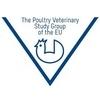Explore all the information on
Newcastle disease
Newcastle disease is a severe, systemic, and fatal viral disease of poultry due to virulent strains of avian paramyxovirus type 1. Clinical signs in unvaccinated birds include sudden death, lethargy, and respiratory distress. Diagnosis is based on laboratory confirmation. Vaccines prevent clinical signs but not infection, and the control of the disease is challenging in enzootic regions. Newcastle disease (ND) is an infection of domestic poultry and other bird species with virulent Newcastle disease virus (NDV). Newcastle disease is not a food safety or public health concern. Virulent NDV is capable of producing a devastating disease in domestic fowl, with vast social and economic consequences. It is a worldwide problem that presents primarily as an acute respiratory disease; however, depression, nervous signs, or diarrhea may be the predominant clinical form. Severity of ND depends on the virulence and genetic type of the infecting virus and host susceptibility.
1. Introduction Currently, with chickens on the path to becoming the most consumed meat worldwide and considering their potential role as reservoirs for zoonotic diseases, proper farm management has become a critical priority within the One Health framework, which emphasizes the interconnectedness of animal, human, and environmental health [1]. Concomitant with the increase of meat production, the escalating persistent problem of bacteria becoming resistant to antibiotics is linked...
Comments : 2
Recommendations: 0
Yeast β-glucans consist of a β(1,3)-linked glucose backbone, with β(1,6)- linked side chains at different interval and sizes along the backbone. They are recognized by several receptors present on the surface of innate immune cells, such as the Dectin-1 receptor. Previous research done with crude yeast cell wall (YCW) extracts, have led to the description of β-glucans as immunestimulant molecules resulting in a strong activation of macrophages that secrete high levels of...
Comments : 0
Recommendations: 0
Introduction to Immunity Immunity refers to the body's ability to resist or defend against infections, diseases, and other unwanted biological invasions. There are two main types of immunity. Innate immunity is the host's first line of defense against invading pathogens but some pathogens particularly immunosuppressive viruses have evolved sophisticated mechanisms to evade the host's innate immune responses and survive within the host. Adaptive Immunity targets...
Comments : 0
Recommendations: 3
The Impact of Hot Weather and Humidity on Broiler Performance: Challenges and Solutions - A.Ashraf Broiler farming is a dynamic business, but one of its biggest challenges is managing birds during hot and humid conditions. While broilers are bred for rapid growth, their ability to regulate body temperature is limited, making them vulnerable to heat stress. This article explores how high temperatures and humidity impact broilers, the consequences for farmers,...
Comments : 0
Recommendations: 0
1. Introduction The Newcastle disease virus (NDV), a member of the Paramyxoviridae family, poses a global threat to poultry and wild birds due to its worldwide distribution and ability to infect various avian species [1]. Infection of birds with highly virulent strains of NDV results in immunosuppression, which at least in part results from profound depletion of lymphoid tissues [2,3]. NDV has also been extensively studied in human tumour cells for its potential role as...
Comments : 0
Recommendations: 0
Newcastle Disease (ND) and Influenza A (IA) are major poultry diseases affecting both commercial and backyard poultry production worldwide1 . We conducted a Nepal’s first nationwide ND and IA prevalence study in 2018, collecting samples from both in commercial and backyard poultry farms. In commercial and backyard farms prevalence of ND was 70% and 17.5% respectively. We also determined the prevalence of IA in these farms (commercial= 27.5%, backyard= 7.5%). Genotype II was the most...
Comments : 0
Recommendations: 0
1. Introduction Infectious bronchitis (IB) and Newcastle disease (ND) are highly transmissible diseases that cause substantial economic losses in the poultry industry [1, 2]. Infectious bronchitis is caused by infectious bronchitis virus (IBV), a gammacoronavirus with a single-stranded positive sense RNA genome [3]. Newcastle disease is caused by virulent strains of Newcastle disease virus (NDV), a paramyxovirus with a single-stranded negative sense RNA genome [4]. Infectious...
Comments : 0
Recommendations: 0
1. Introduction Infectious bronchitis (IB) and Newcastle disease (ND) are highly transmissible diseases that cause substantial economic losses in the poultry industry [1, 2]. Infectious bronchitis is caused by infectious bronchitis virus (IBV), a gammacoronavirus with a single-stranded positive sense RNA genome [3]. Newcastle disease is caused by virulent strains of Newcastle disease virus (NDV), a paramyxovirus with a single-stranded negative sense RNA genome [4]. Infectious...
Comments : 0
Recommendations: 1
Spring has come to stay for a few months, everything is getting greener, and the environment is recovering from the harsh cold, but as optimistic as we are, we find spring to be a great moment for raising awareness of poultry’s most common diseases. Want to know some of them? 1. Coccidiosis Represented in poultry...
Comments : 0
Recommendations: 2
Could anyone please explain what are the symptoms and post mortem lesions(in kidney, liver, heart, trachea, bursa, intestine, lungs, gizzard, proventriculus) of RD/ND in broiler chicken? Also, what is the best medication process to control it? ...
Comments : 1
Recommendations: 0
1. Introduction Phytogenic feed additives “phytobiotic” are assuming a position of prime importance in the poultry industry [1–3] and could be used in feed or water [4]. Among the promising phytogenic immune-stimulants, Nigella sativa (N. sativa) is a miracle medicinal herb having a long history with a rich religious background [5, 6]. N. sativa seeds are used for the treatment of some disorders and illnesses including fever, common cold, headache, asthma,...
Comments : 0
Recommendations: 0
1 | INTRODUCTION Water is the source of life on the earth and it seems that without water, life is inconceivable. Unlike humans, who can produce and retrieve the necessities of life by increasing their knowledge, birds rely more on the water in nature, and unfortunately, any changes affecting the quantity and quality of water in geographical areas of the world including Urmia Lake, affects the lives of birds. The ecological level of the Urmia lake water is 1274.10 m/12.546 Bm3...
Comments : 0
Recommendations: 0


Speculation over the Provisional Ruling on Anti-dumping Duties of Lysine by the EU Against China
Suggested link
Cordyceps militaris is widely used as a tonic for vitality and longevity for thousands of years by the Chinese, it is a rare and exotic Chinese medicinal mushroom. Cordyceps militaris also used for a long time as a nutraceutical food in Korea and Japan. The medical potential of the metabolites of Cordyceps militaris has been widely reviewed. Cordycepin, or 3'-deoxyadenosine, is the major active secondary metabolite of Cordyceps militaris ....
Comments : 0
Recommendations: 1
1. Introduction Newcastle disease (ND) is a highly contagious and fatal disease affecting poultry and a wide range of wild birds worldwide that is caused by infections with virulent strains of Newcastle disease virus (NDV) (Miller et al., 2010; Dimitrov et al., 2016c). Recently, the International Committee On Taxonomy of Viruses amended the taxonomy of genus Avulavirus of the Paramyxoviridae family. Newcastle disease virus and all avian paramyxoviruses 2-13 were renamed to avian...
Comments : 26
Recommendations: 0
BACKGROUND Poultry ( Gallus domesticus ) farming is one of the major sources of protein and means of food security for growing population throughout the world (1). Around 75 million broiler chickens are reared annually as a source of meat in Nepal, and the industry has rapidly grown in the recent years (2). The present population of laying hens is more than 7 million, the meat produced from poultry exceeds over 17 thousand metric tons, and the egg production from laying...
Comments : 0
Recommendations: 0
1. Introduction Newcastle disease (ND) is a highly contagious avian disease with a significant impact on global poultry production. ND is caused by the Newcastle disease virus (NDV), formerly known as Avian orthoavulavirus 1 (AOAV-1), belonging to the family Paramyxoviridae (https://talk.ictvonline.org/taxonomy/ accessed on 20 October 2021). The genome of NDV is single-stranded, non-segmented, negative-sense RNA encoding six structural proteins: nucleocapsid protein (NP),...
Comments : 0
Recommendations: 0
INTRODUCTION Genetic selection for higher growth rate, and providing balanced diet and superior health care measures led to a higher body weight in commercial broilers. The birds that are being reared in open-sided poultry houses may lead to stress due to constant dynamic variations in temperature and humidity in the environment, which causes adverse effects on performance (Niu et al., 2009), meat quality and immune responses (Thompson and Scott, 1970). Further, heat causes a...
Comments : 0
Recommendations: 0
I would be grateful if somebody tell me if subclinical infection of respiratory diseases -ND,IB,ART. and other subclinical infections have an impact on performance of chickens . How much is drop production and hatchability? To how much extent have the progeny any abnormalities?
thanks and regards...
Comments : 0
Recommendations: 1
Kindly guide about Interference of MDA with ND(inactivated vaccine titers) in broilers if have please explain? ...
Comments : 1
Recommendations: 0
1. Introduction Among viral diseases affecting poultry production Newcastle disease (ND) is one of the most common and serious one [1]. It is caused by viruses of genus Orthoavulavirus, Avian orthoavulavirus 1 species [2] formerly designated as Avian avulavirus 1, that are commonly known as Avian paramyxovirus 1 (APMV 1) or Newcastle disease viruses (NDV). The virulent forms of NDV cause a devastating disease of poultry throughout Asia, Africa, the Middle East, and Central and...
Comments : 0
Recommendations: 0



































